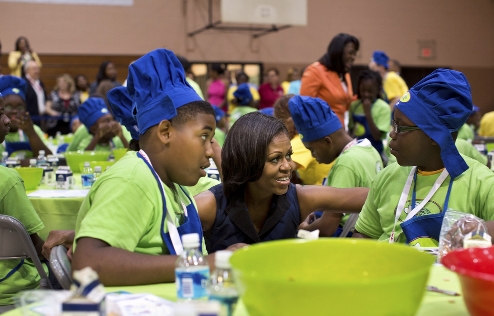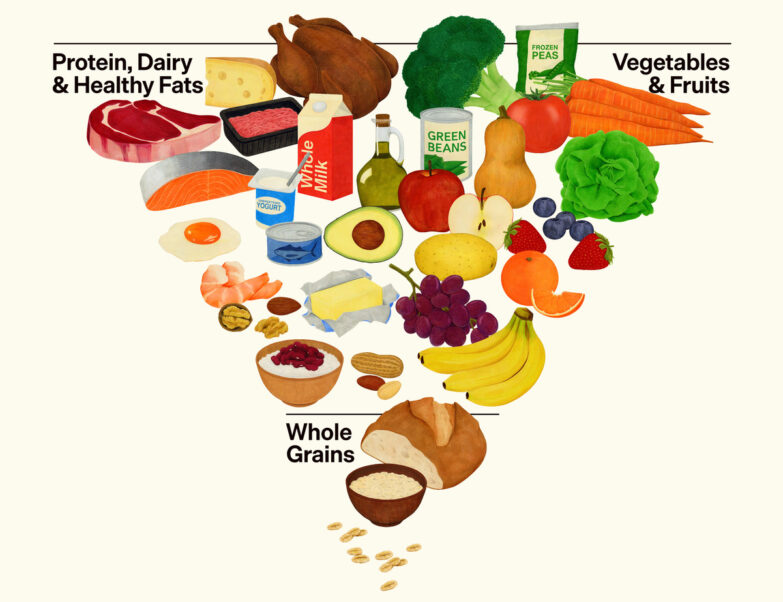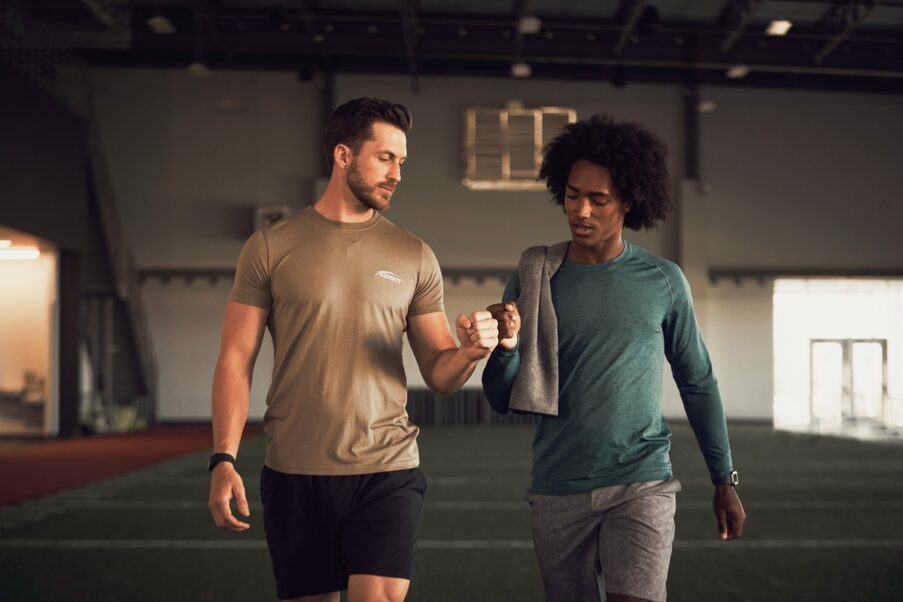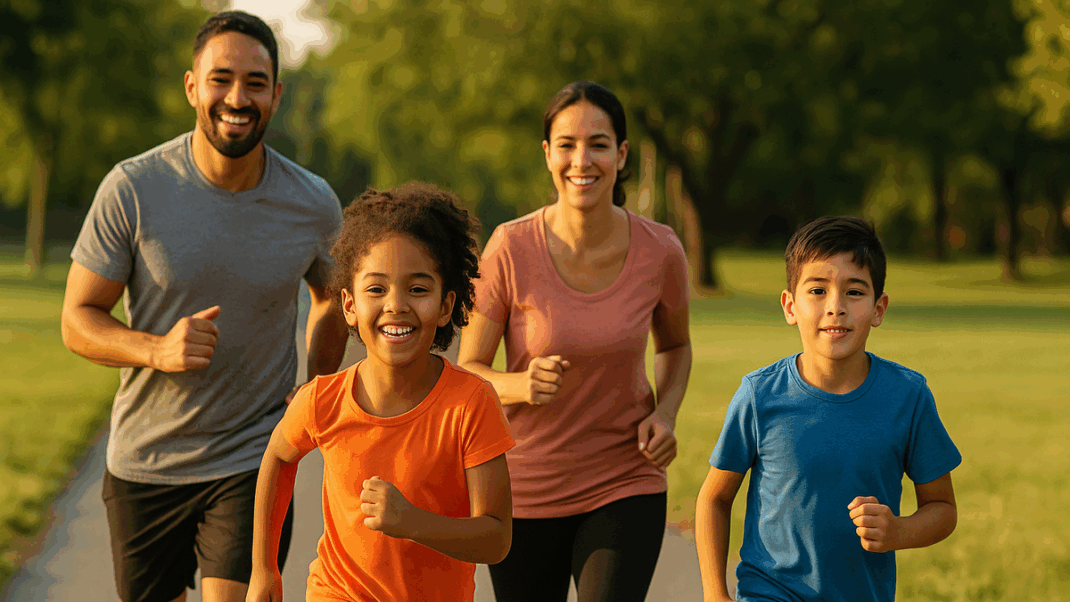Let’s Move! A View From the White House
Sam Kass, the Obamas’ chef and the president’s senior policy advisor for healthy food initiatives, reflects on the work that’s been done through Let’s Move! and rolls up his sleeves for what’s yet to come.

Now that the presidential election is decided, it’s a good time not only to note the progress of First Lady Michelle Obama’s main initiative, Let’s Move!, but to explore how this important work will continue over the next 4 years.
IDEA editor in chief Sandy Todd Webster recently interviewed Sam Kass, White House senior policy advisor for healthy food initiatives, to discuss the “state of the union” with the man whom the First Lady handpicked to implement her vision for turning the corner on obesity in the United States. With Centers for Disease Control and Prevention facts showing that childhood obesity rates have tripled in the past 30 years, the most intense focus of Let’s Move! has been on kids’ education and programming.
Kass, arguably the most powerful chef in the country, maintains a good balance at 1600 Pennsylvania Avenue. When he’s not out promoting Let’s Move! (which he often is), he sheds his policy-wonk hat most afternoons to button up his chef’s jacket and cook dinner for the Obama family. Among his many and varied duties for the administration, he managed the implementation of the now-famous White House vegetable garden and continues to oversee its planting and harvesting.
Sandy Todd Webster: In terms of the Let’s Move! initiative, what accomplishments are you most proud of so far?
Sam Kass: The First Lady has been very successful in uniting people around the nation’s well-being, particularly [the well-being] of the nation’s children. We’re seeing people step it up in every corner of the country and in every segment of society.
From businesses making changes for the better in some of their practices; to parents making small—but such important changes—at home; to schools improving what they’re serving and trying to get their kids more active—we’re seeing it across the board. I could go on and on about the comprehensive nature of how we as a nation have been working to tackle these challenges to ensure that all of our kids grow up healthy and get the chance to live the healthy lives they deserve.
I think the First Lady has been able to put these issues in the center of our consciousness, and people are thinking hard and working creatively to make improvements. In just over 2 years we’ve come a long way. Of course we have a long, long way to go in terms of nutrition and making sure we’re eating balanced and healthy diets as well as the amount of physical activity we’re getting. But we’re making great progress.
Webster: This is a big ship to turn. We haven’t seen obesity numbers budge much. If anything, the obesity statistics seem to be getting worse, especially in terms of kids. How are strategies prioritized around that right now? It seems there’s so much yet to tackle.
Kass: There’s no question. Look, it’s taken us decades to get into the situation we’re in now. It’s going to take us a long time to get out. The First Lady knows that we are all in this for the long haul. Taking that perspective is critical. We’re looking to pull the most important levers and to engage and inspire the most critical people who have a real stake in these issues. It’s not, “If only we stopped eating this,” or “If only we started doing that,” we could solve this problem. It’s going to take a long, sustained effort to accomplish this. At our core I’ll say that this is about eating a balanced, healthier diet and about moving more. That’s the foundation of everything we do.
Webster: Is there a specific role you see fitness professionals playing?
Kass: The First Lady has put out a call to action to everybody to engage in this effort. We all have a role to play. We have to start investing our time, energy and resources in this as a foundation of what a healthy, productive life is.
Fitness instructors and others whose professions revolve around fitness are role models and an inspiration to those people they are engaging—particularly young people. They give them the tools they need to be active. Simple little things can go a long way. Showing a person how to do a workout on the living-room floor for 15 minutes a day can have a huge impact on someone’s life.
I think the same is true of nutrition. We all have to message that you can’t have one without the other and expect to be healthy. We can’t take the pieces of movement and nutrition out of the context of the other. There is no point in working out for an hour a day if you are then going to eat a ton of unhealthy food. Or perhaps you may be eating a really healthy diet, but you never get any exercise. One without the other doesn’t add up to great health.
Webster: Talk to me about food, nutrition and cooking as survival skills for kids and families. How do we impart these skills, which have both health and economic benefits, so people are better able to cope when budgets are limited?
Kass: One of the pillars of the First Lady’s mission is to ensure that all people have access to healthy and affordable food. One of the greatest strategies to make sure that healthy food is affordable is through home cooking. It’s a knowledge base that we’ve lost a lot of over the past few generations. We are working hard to regain some of the tools and skills that can help us feed our families in a healthy way. For example, you can buy oatmeal in any restaurant, and even in the cheapest restaurant, it costs you $1.50 or so—but you can cook it at home for 25 cents. The ability to invest a little time and effort in cooking at home can dramatically improve people’s diets, but it can also be done in a very affordable way.
One of the biggest accomplishments of the past couple of years has been the release of the new “My Plate,” which the First Lady has championed. We’ve worked very hard to get very specific, simple steps that people can make to improve what they’re putting on their plates, and do it in a way that’s creative and adaptable to any culture and community across the country.
With My Plate and ChooseMyPlate.gov there are all kinds of recipes and strategies for people to utilize to help them do that. So those tools have been really powerful. But we all have to work together. We’ve called upon chefs to step up and get their knowledge out to schools and communities. We’re trying to message this at every opportunity. The First Lady always makes sure that when we do harvests in the [White House] garden, cooking and eating are a component of that, because that’s such a core part of what we’re trying to do.
Webster: Please describe what a White House garden harvest and cooking day with the kids is like.
Kass: We normally harvest the food, wash it and then prepare it right down by the garden and eat it. It’s a great day when we do that. The harvest I remember most was when we decided to serve only just-picked, raw vegetables with some simple, healthy dips. Needless to say, we were all pretty nervous because you’re giving kids raw broccoli, cauliflower, peas—kale! Normally kids don’t go for that. One kid showing a sour face can have a pretty negative impact with all the press who are always at our events. But because the kids had helped plant, harvest and then prepare everything, they just devoured those raw vegetables in a way that was amazing. When we engage kids in the process of what it means to plant, cook and eat food, their minds just open up. We’ve seen that time and time again.
Webster: How will Let’s Move! progress? What’s yet to come?
Kass: The First Lady came to this issue as a mom—a mom who was struggling with how to make sure her kids were healthy back in Chicago. This is the reason she embarked down this path as First Lady. These are issues that are near and dear to her heart, that she will continue working on well beyond her time in the White House—whenever that may be. This country has a champion in these issues from Michelle Obama as long as she is an active public figure.
That said, this is the work of the country. The First Lady has shown tremendous leadership, but the solutions are coming from America and from citizens all across the nation. The First Lady often says that we have very little ability to fundamentally change these issues. These are issues that community leaders and business leaders and parents and teachers are solving on their own—and doing in a way that makes the most sense for them. Their work has to continue.
So that means working on the key areas we’ve been focusing on:
1. Making sure kids are getting a healthy start to life in early childhood.
2. Making sure our schools are really supporting and nourishing the health and well-being of our kids.
3. Making sure our kids are getting proper physical activity every day.
4. Making sure families have access to healthy and affordable food. That means mayors and community leaders are working to make sure there are grocery stores in all neighborhoods so people can get the foods they need.
5. Making sure parents are empowered with the right information to make healthy choices once they have access [to healthy, affordable food].
Those are the most important areas in which we feel the work needs to be continued. There are people who have been doing this for decades and will continue to [stay engaged]. Parents particularly are going to keep taking up this charge. I’m very optimistic that as we continue to unite around the well-being of our kids we can truly overcome these challenges and make sure they grow up healthy.
Webster: How has your advocacy role changed your perspective and your view of your career?
Kass: These are issues I came to the White House very passionate about, and I’ll dedicate my life to continuing this work. It’s been truly an honor to work for this President and this First Lady, whom I believe in, and [to be an advocate for] the work the First Lady has done. I think it can set this country on a path that we’ll look back on and see that we’ve really changed the course of things. The country will benefit. These are issues that have an impact on our economy, on our national security, on our education and certainly on our health care. We’re hoping to set a foundation for the future that can bring about real improvements in all of those areas. It’s been an amazing journey to be a part of that. I continue to be optimistic about all we can accomplish.
Sandy Todd Webster
For 22 years, Sandy Todd Webster was the chief architect of IDEA's content program - including the award-winning IDEA FITNESS JOURNAL and IDEA FOOD & NUTRITION TIPS - the industry's leading resources for fitness, wellness and nutrition professionals worldwide. She created, launched and nurtured these brands and many others during her productive and purposeful IDEA tenure. Sandy is a Rouxbe-certified professional plant-based cook and a Precision Nutrition Level 1 Coach who is pursuing a Master's degree in Sustainable Food Systems through The Culinary Institute of America (expected August 2024). She plans to combine these passions with her content expertise to continue inspiring others to make the world a more just, healthy and regenerative place.






